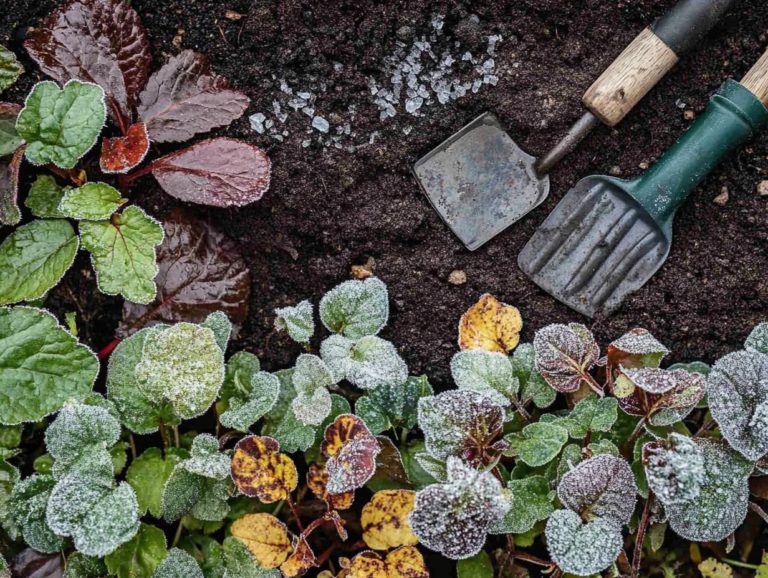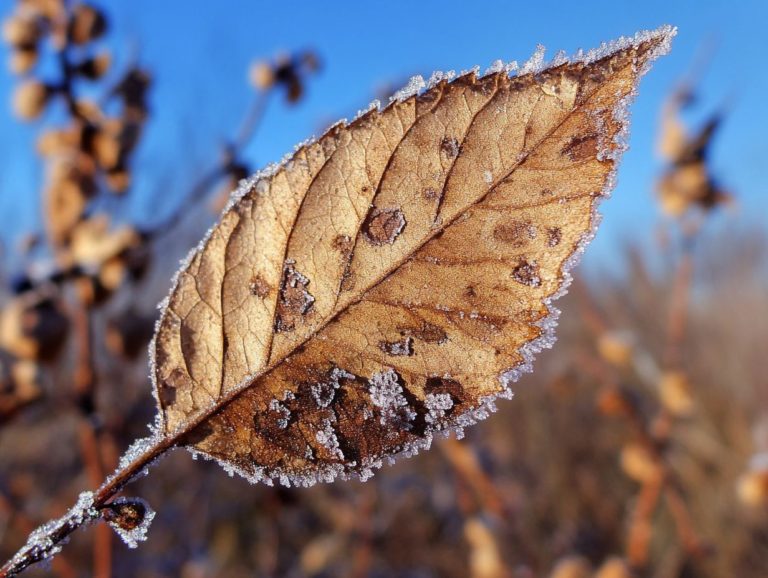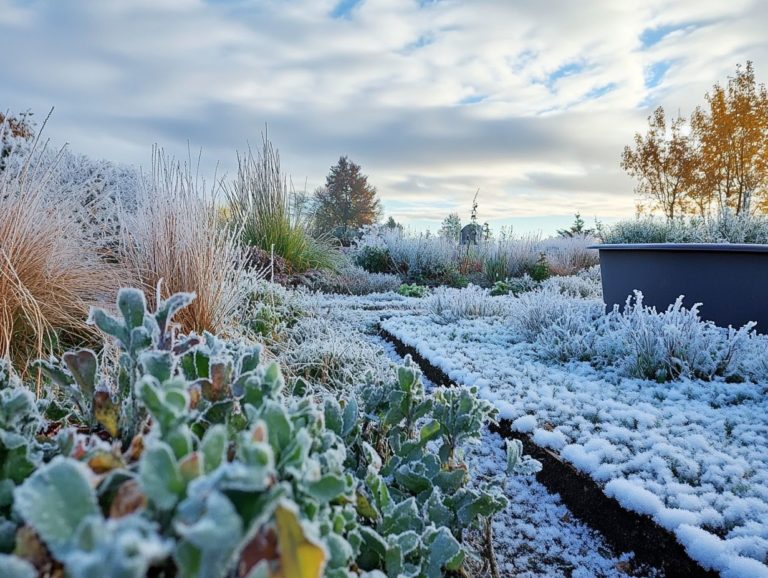How to Use Natural Pest Control in Winter?
As winter settles in, you may find yourself facing an influx of pests seeking warmth and shelter. Traditional pest control methods might not be as effective during this chillier season, which is why exploring natural solutions becomes crucial.
This guide helps you identify common winter pests. It also outlines effective non-toxic control methods and preventive measures to keep your home pest-free.
We will also explore how combining natural and traditional approaches can improve your pest management strategy for a peaceful winter.
Contents
- Key Takeaways:
- The Importance of Natural Pest Control in Winter
- Common Winter Pests and How to Identify Them
- Natural Pest Control Methods
- Preventive Measures for Winter Pest Control
- Combining Natural and Traditional Methods
- Frequently Asked Questions
- What is natural pest control and how can I use it in winter?
- Are there any natural barriers I can create to prevent pests in winter?
- Can I use essential oils for natural pest control in winter?
- What are some common pests to look out for in the winter?
- How can I prevent pests from entering my home in the winter?
- Are there any specific natural pest control methods for certain types of pests in winter?
Key Takeaways:

- Use natural pest control methods in winter to protect your home and family without harmful chemicals.
- Identify common winter pests and their signs of infestation to effectively target and eliminate them.
- Take preventive measures such as sealing cracks and keeping a clean home to prevent pests from entering your home in the first place.
The Importance of Natural Pest Control in Winter
Natural pest control is essential during the winter months, as unwelcome guests like cockroaches, rodents, and spiders often seek refuge in your home. Understanding the best timing for pest control in winter can help you effectively manage these intruders.
By embracing eco-friendly pest control methods, you not only preserve the cleanliness of your living space but also protect your health by reducing your exposure to harmful chemicals and health risks.
Experts such as Jessica Breger and Dr. Myles H. Bader highlight that effective pest prevention strategies can significantly lower your chances of facing infestations in winter, including those from Fungus Fly and mealybug, ensuring a safe and comfortable environment for you and your loved ones.
Why Common Methods May Not Work
Common pest control methods often struggle during the winter months, largely due to the distinctive behaviors of winter pests and the health risks linked to chemical treatments. Understanding the importance of winter cleanup for pest control can help mitigate these challenges.
As winter sets in, pests like cockroaches and rodents instinctively seek warmth and shelter indoors, making them more challenging to manage. While chemical solutions might promise swift results, they can carry significant health risks for your family and pets, potentially leading to respiratory issues and allergic reactions.
On the other hand, natural remedies offer a safer, more responsible approach, effectively deterring these unwelcome guests while minimizing health hazards. Additionally, understanding the role of beneficial insects in winter gardens can enhance your pest management strategy. Turning to professional pest control services can provide you with tailored strategies that are both eco-friendly and efficient, ensuring a pest-free sanctuary throughout the harsh winter months.
Common Winter Pests and How to Identify Them
During winter, you may encounter a host of common pests, including cockroaches, rodents, and spiders, each of which can pose serious health risks if not addressed promptly.
Spotting these intruders early on is crucial for preventing infestations and establishing effective management strategies. For example, cockroaches often seek refuge in the warmth of your kitchen, while rodents like mice can sneak in through tiny openings.
Being aware of these telltale signs is vital for deploying natural pest control solutions, such as Dragonfli Plant Soap, to keep these unwelcome guests at bay.
Types of Pests and Signs of Infestation
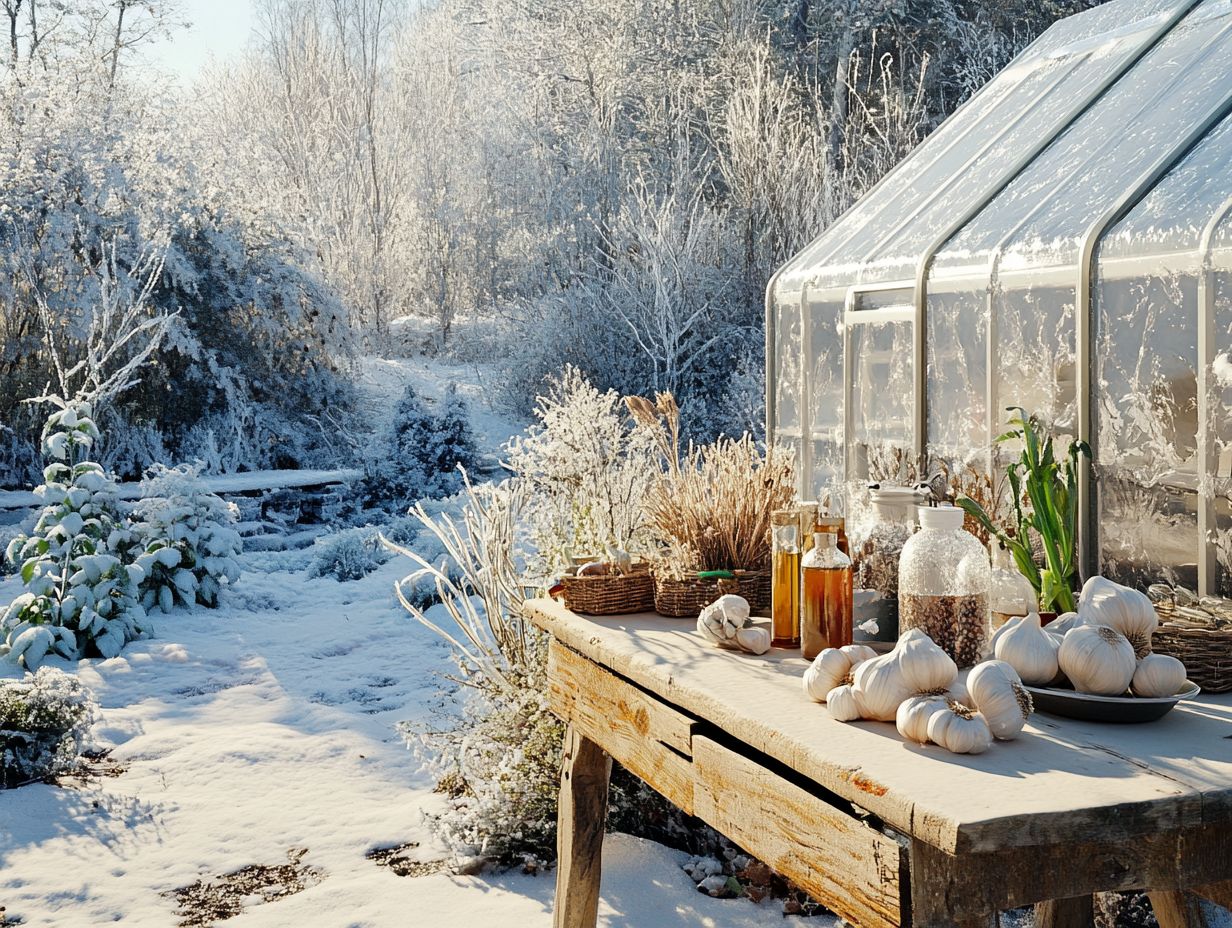
Various winter pests, including cockroaches, rodents, and spiders, display specific signs of infestation that you should keep an eye out for.
For instance, cockroaches often leave behind small, dark droppings resembling pepper grains, which you might discover in hidden corners or near food sources. Rodents, such as mice and rats, typically create nests from shredded paper and insulation, often found in attics or basements. Their droppings are larger and can frequently be spotted near food sources or along baseboards. While spiders may not leave droppings, the characteristic webbing they weave in corners can certainly signal their presence.
Recognizing these signs is essential for timely intervention and maintaining a pest-free environment during the chilly months, particularly against ants and silverfish.
Act now to protect your home from winter pests! Contact your local pest control expert today.
Natural Pest Control Methods
Natural pest control methods are becoming popular as effective ways to manage winter pests without harmful chemicals. For those interested in environmentally friendly practices, using natural fertilizers in winter is often the preferred choice for discerning homeowners.
By using natural remedies like essential oils garlic and peppermint you can deter unwanted guests such as spiders and cockroaches while keeping your houseplants and loved ones safe.
When executed properly, DIY pest control solutions with techniques like garlic smoke can provide impressive, long-lasting results, helping to keep infestations at bay during colder months.
Non-Toxic Solutions for Winter Pests
Implementing non-toxic solutions for winter pests is essential for maintaining a safe and healthy home environment. This is particularly important given the potential health risks of chemical treatments.
These eco-friendly methods protect your family from harmful substances and promote a more sustainable living space. Using garlic smoke as a natural deterrent creates an unwelcoming atmosphere for rodents, while the pleasant aroma of essential oils like peppermint and eucalyptus effectively keeps spiders away.
Unlike conventional pesticides, these solutions are often pleasant-smelling and safe for children and pets. By adopting these strategies, you can achieve long-term pest management, reducing the need for repeated applications and preserving the delicate balance of the local ecosystem.
Preventive Measures for Winter Pest Control
Taking proactive measures for winter pest control is vital for protecting your home from potential infestations. Simple yet effective actions like sealing entry points, storing food properly, and maintaining a clean environment can significantly reduce risks from common winter pests, as outlined in understanding pest behavior in cold weather.
By following best practices and tips from professional pest control experts, you can cultivate a pest-resistant sanctuary for your family and treasured houseplants.
Effective Tips to Keep Pests Away

To keep pests at bay during winter, adopt straightforward yet impactful strategies centered on cleanliness, food storage, and securing entry points into your home. These steps are especially critical for preventing rodents.
Proactive measures create a less inviting environment for unwanted guests and enhance your overall living experience. Maintaining a rigorous cleaning routine is essential; promptly addressing crumbs and spills is crucial for eliminating potential food sources.
Prioritize airtight food storage solutions using sealed containers for grains and snacks to deter pests like rodents and insects. Systematically check and seal potential entry points such as gaps in doors, windows, and siding to dramatically reduce the chances of pests finding their way indoors during colder months.
Combining Natural and Traditional Methods
Integrating natural pest control methods with traditional approaches creates a comprehensive and effective pest management strategy. This is especially important during winter months when preventing indoor pests during winter becomes more prevalent.
Try out these methods in your home, and share your experiences with others to help spread the word about effective pest control solutions!
Using a Combination for Maximum Effectiveness
Using a blend of natural remedies like essential oils along with professional pest control services offers you the most effective strategy for managing winter pests. This keeps your home environment safe and healthy.
This approach uses the best of both methods, providing a comprehensive defense against common invaders like rodents and insects. For example, using essential oils such as peppermint or tea tree oil can effectively deter pests, while treatments from certified experts tackle any existing infestations.
By adding these natural deterrents to your professional pest control schedule, you can create an unwelcoming atmosphere for pests. This significantly diminishes the likelihood of recurring problems.
This powerful combination promotes a sustainable pest management strategy and aligns with your commitment to environmental health and safety.
Frequently Asked Questions
What is natural pest control and how can I use it in winter?
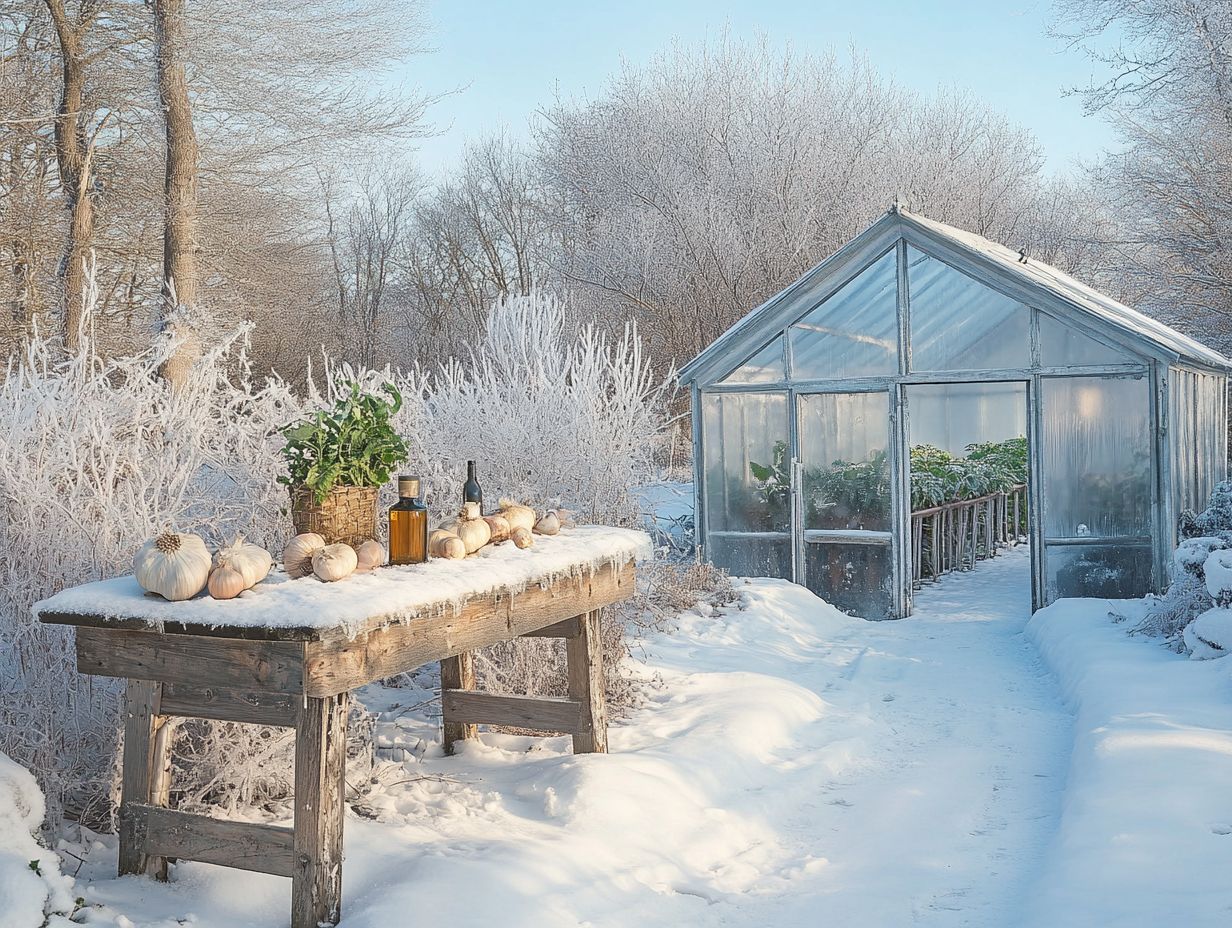
Natural pest control involves using non-toxic methods to eliminate pests like insects and rodents from your home. In winter, you can utilize protecting your garden from winter pests techniques, such as creating barriers and using essential oils to keep pests away.
Are there any natural barriers I can create to prevent pests in winter?
Yes, several options exist for natural barriers to keep pests out. You can use diatomaceous earth, a natural powder that deters pests, or employ physical barriers like screens or caulk to seal cracks and openings in your home.
Can I use essential oils for natural pest control in winter?
Yes, essential oils can effectively repel pests in winter. Peppermint, eucalyptus, and tea tree oil are all known to keep insects and rodents away. You can mix a few drops with water and spray it around your home or use cotton balls soaked in oil as a deterrent.
What are some common pests to look out for in the winter?
Common winter pests include rodents like mice and rats, as well as insects like cockroaches and spiders. These pests often seek shelter and warmth in your home during the colder months.
How can I prevent pests from entering my home in the winter?
To stop pests from entering your home, seal any cracks or openings, keep your home clean and clutter-free, and use natural deterrents like essential oils or diatomaceous earth. Regularly inspect and maintain your home’s exterior to prevent entry points for pests.
Are there any specific natural pest control methods for certain types of pests in winter?
Yes, specific methods exist for different types of pests. For example, for rodents, you can use peppermint oil or set traps with natural ingredients like peanut butter and oats. For insects, mix essential oils and water as a spray or sprinkle diatomaceous earth around entry points.



